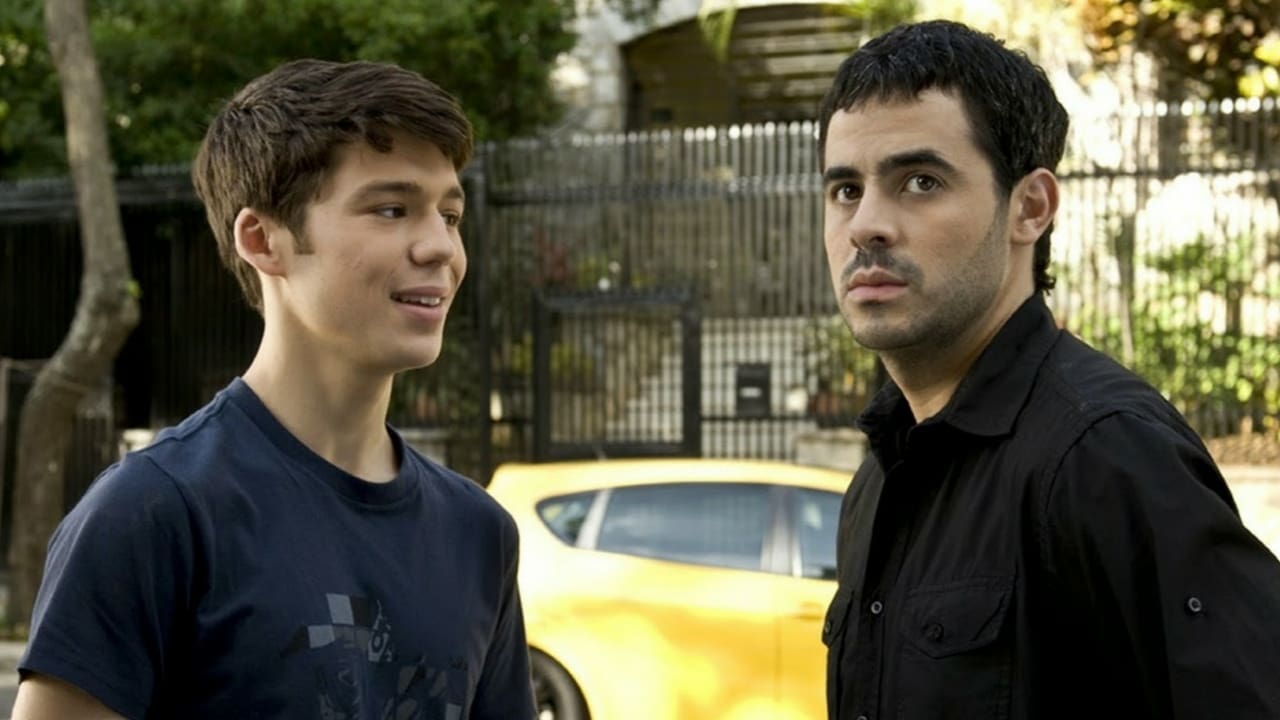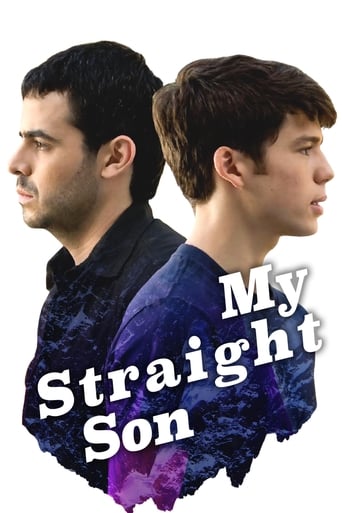

A beautiful film from Venezuela. The title actually translates as "Blue and Not So Pink," but has been dumbed down to "My Straight Son." The movie is an exploration of things we wish were different and how we deal with them - be they the tragedies of life, first love, gender identity, physical appearance, bad relationships, or self-confidence. Every character offers a different element that they struggle with and their own unique solution. The film wraps it up in wonderful, believable relationships and intelligent dialogue. The plot takes you a bit all over the place, but the story never looses your attention. The actors are all uniformly brilliant and the emotion is genuine. Courageous and heartwarming, this is meaningful work and well worth anyone's time. One of my favourites.
... View MoreI didn't really plan to see the film. A group of friends asked me to go and I agreed, so my expectations were really low. The movie ended up surprising me.Azul y no tan Rosa might be one of the best Venezuelan films ever made. The story may be a bit too melodramatic, but it says a lot about tolerance and family relationships. The acting, even though not great, is decent. There are laughs, tender moments, sad moments and the movie is really nice to look at because of the locations.I recommend this movie to anyone who thinks Venezuelan cinema is trash (which is not). It won the Goya Award for best Ibero-American Film, which represented a big win for Venezuela too.
... View MoreAs a Venezuelan-Spanish co-production, Michael Ferrari breaks the stereotypes that have been used in the Venezuelan film, drives an impeccable appearance and a photograph of the hand of Alexandra Henao, fascinates viewers. Plans and camera movements in international cinema quality, enrich this film production which further supported his scenes with the cool colors and characterized.In his debut, Azul y no tan Rosa, Ferrari presents a thesis which is certainly quite complex: intolerance for sexual diversity is a topic which is naturally difficult to address and that the director handled the film with a very positive simplicity, however the story tries to cover multiple frames as domestic violence, lack of communication between parents and children, gender change and low self-esteem, which, although they are strongly linked to the central idea, causes a slight imbalance in the argument.It is almost impossible for the extraordinary soundtrack of this film go unnoticed. Composed by the brilliant Spanish pianist Sergio de la Puente, music composition gives it strength and character to the story hard to describe. The rhythm, melody and harmony beautify the scenes, muting, at times, the dialogue in a timely manner. No doubt invaluable added intensity.Despite the mistakes that can be glimpsed in the film, Azul y no tan Rosa becomes literally eye drops for Venezuelan film. Definitely a work in which Miguel Ferrari adorns his directorial debut.For Venezuela, a discussion of the Venezuelan cinema today is painful and inconsequential. To summarize, with this film, which tries to cover a little of this reality so degrading.
... View MoreThe director managed to use the camera to capture a true picture of the current venezuelan society discrimination to minorities, not exclusively sexual.Being a movie that depicts the medium class in the venezuelan country, also imprints the idiosyncratic attitude: excess, lack of responsibility, the need for a better future and the absence of opportunities in the country, the violence and the impotence against the injustice, the love and the prejudice, the blood ties that grows stronger no matter the distances. It's a film that has both a marvelous artistic touch and a protest underlying in the plot, that thickens as unravel while the movie goes on. By the end of the film, you'll find yourself attached to the characters stories: feeling them as your friends, suffering their tragedy and rejoicing in their destiny.Elegant, made with care to the detail and inspiring.
... View More